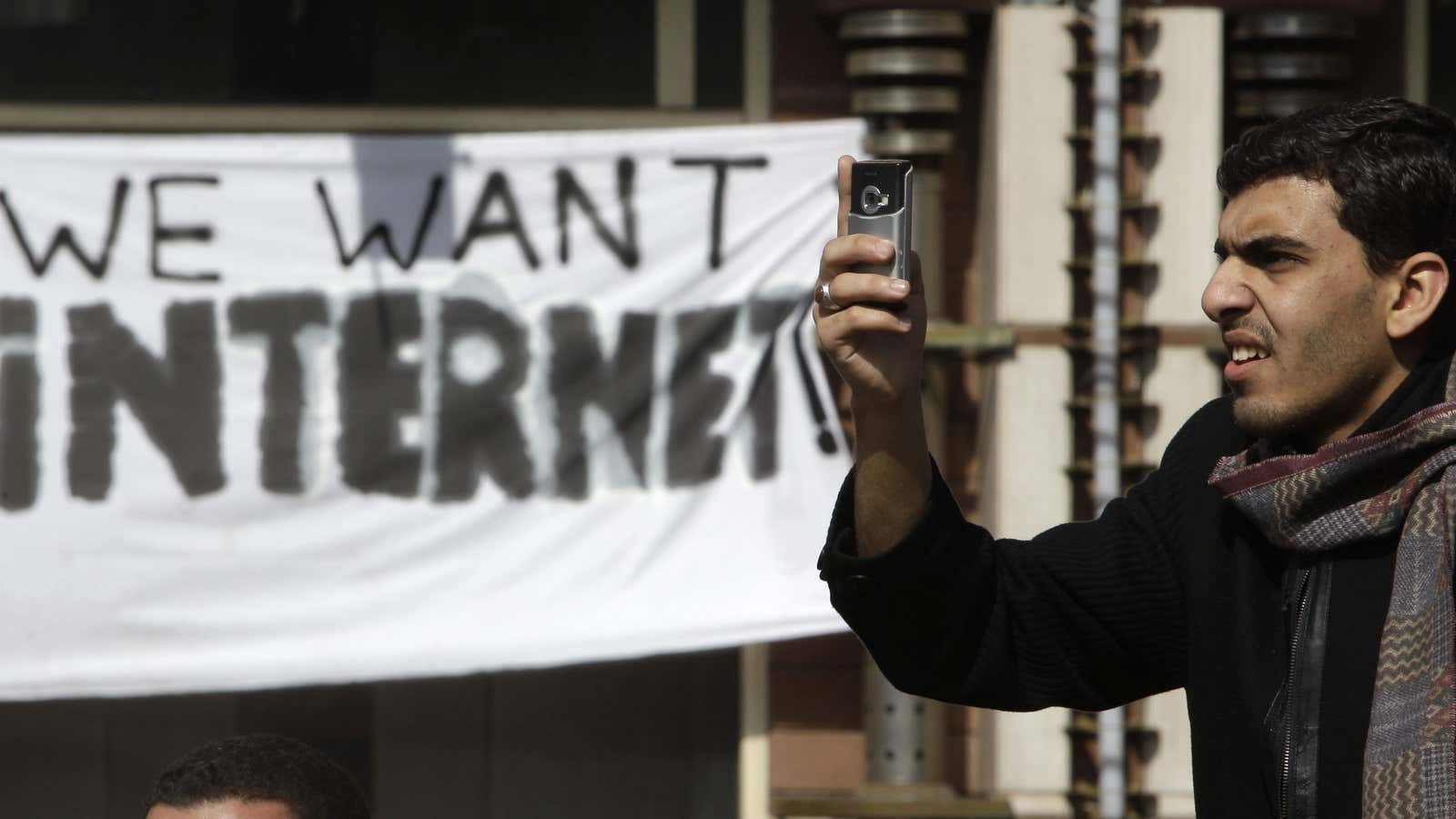This year marked a crucial turning point for digital progress and internet freedom in Africa. Here are the big trends that shaped the digital space in 2017, and what they tell us about what to expect in 2018.
Targeted internet shutdowns
Even though fewer African nations intentionally disrupted the internet this year governments either did so more frequently or over longer periods of time. In Africa, there were at least 12 instances of intentional internet or mobile network disruptions in 9 countries in 2017, compared to 11 in 2016.
There has also been increasing sophistication of shutdowns, targeting smaller groups of people and locations. For instance, In Cameroon’s Anglophone regions, a 93-day shutdown following anti-government protests lasted from January to April, before the government instituted another block that is currently ongoing for more than 80 days. The same scenario happened in Ethiopia, where the government shut the internet ahead of national exams in May and blocked Twitter, Facebook, and YouTube after new protests flared in December.
Algeria, DR Congo, Togo, Egypt, Morocco, Equatorial Guinea, and the Somaliland region in Somalia are the rest of the countries that thwarted live internet feeds, according to digital rights advocacy Access Now.
In 2017, a new measurement approximated the immediate and long-term structural effects of internet shutdowns showing that when connectivity is throttled, it undermined economic growth. The scope of these shutdowns was of concern to experts and stakeholders alike: the African Network Information Center (AFRINIC), a Mauritius-based agency that manages and allocates the registration of internet IP addresses, discussed a proposal to deny an IP address for one year to any government that oversees a shutdown and any of their related bodies. In an interview with Quartz, billionaire businessman Mo Ibrahim called internet shutdowns “a crime” that shouldn’t be tolerated. “To try to gag the people and silence them is not appropriate really. It’s not acceptable.”
The rise of “fake news”
Like in many places across the world, the spread misinformation and the deployment of bots to distort narratives became a topic of concern in Africa. For instance, in Kenya’s highly-contested election, political operatives registered fake news websites and sponsored attack ads on YouTube and Instagram to discredit opposing candidates. WhatsApp and Facebook, “dark social” sites where information shared cannot be measured or questioned publicly, were caught at the center of this debate. Facebook, which owns both platforms, stepped in and rolled out an educational tool that would help users spot and limit the spread of fake news ahead of the elections.
The Nigerian Nobel laureate Wole Soyinka was among many prominent Africans who voiced their concerns about fake news. Calling it “a permanent weaponry of power,” Soyinka said the “democratization of technology has at times given power to the wrong people.”
Undermining digital rights
In 2017, governments either proposed or passed poorly conceived laws that violated people’s privacy and criminalized free speech. For example, Tanzania tabled the Electronic and Postal Communications (Online Content) Regulations 2017 that calls for the registration of blogs and online forums, some of whom are already being stifled and battling the government in court. Countries like Ethiopia acquired commercial spyware aimed at monitoring journalists and dissidents. And in Egypt, the government deployed technologies that restricted users’ access to the internet, banning voice calls made over social media apps in April, and blocking hundreds of local and international websites amid widespread media crackdown.
Shock videos
The world was shocked—or not—when CNN broadcast a video showing African migrants being sold as slaves in a Libyan marketplace. But videos of African migrants being tortured surfaced online before that, triggering the question of whether Facebook should take them down and crack down on smugglers using these outlets to advertise risky sea crossings.
A Facebook spokesperson told Quartz that the decision to remove content depended on the context and degree of a given situation. If people share violent or graphic images in order to raise awareness or condemn them, then age-gating tools are used to ensure the content is seen those aged 18 and over. “We also believe it is important that Facebook continues to be a place where people can raise awareness of important, and sometimes controversial issues,” the spokesperson said.
Rising connectivity
There’s still plenty of improvement needed to make the internet work for Africa. If you want affordable internet, you have to move to a coastal country, but even then, internet speeds are still far below the global minimum standard. Amid the gloomy picture, Kenya’s mobile internet speed was ranked the 14th fastest ahead of the United States and South African networks started cutting out-of-bundle data costs after the regulator responded to the #DataMustFall campaign. Increasing penetration of the internet in countries including Somalia and Egypt have also helped boost the local tech scene.
